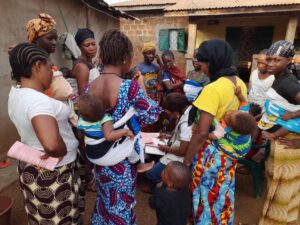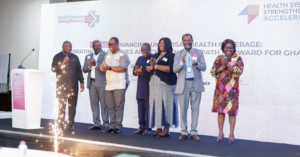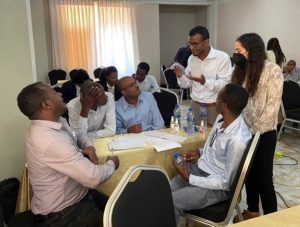Improving Equity in Coverage and Financial Protection through Ghana’s Primary Care Provider Networks
The Challenge
Equity in health is the absence of systematic health disparities between social or economic groups. Equity is one of the core concepts underlying Ghana’s Universal Health Coverage (UHC) agenda and a key objective of the country’s Health Systems Strengthening (HSS) reforms. However, equity is rarely studied. Promoting equitable access to essential health services is one of the three core objectives of the Government of Ghana’s (GOG) Primary Care Provider (PCP) Network initiative. This activity aims to generate new knowledge on the role PCP Networks can play in promoting Ghana’s equity objectives and contribute to the global understanding of equity-enhancing strategies.

The Opportunity
The activity applies implementation research and adaptive learning methods to understand if and how PCP Networks can meet the GOG’s equity objectives and how context affects the initiative’s implementation. The results of this implementation research will provide actionable evidence for the government about how they can integrate equity-enhancing initiatives into PCP Network design as the model is scaled up nationally. The Accelerator will support the GOG’s efforts to apply evidence to implementing equitable programs and policies at the primary health care (PHC) level.
Our Work
The Accelerator provided technical and financial support to the researchers from the Ghana Health Service (GHS) and the Equity expert from the Institute of Statistical, Social and Economics Research (ISSER) and the University of Ghana to collect and analyze data, interpret, and refine findings, disseminate findings to key stakeholders in Ghana and finalize the technical report.
The study and dissemination forum reports have been circulated among technical experts supporting PCP Network implementation in Ghana and key policymakers at the national level. Several recommendations from the study will be reflected in the next version of the operational manual of the PCP Networks. This document sets out key principles of the design, launch, and implementation of the Network approach during the scale-up in other regions. These include recommendations on the definition and monitoring of equity among Networks, user education, and empowerment, and strengthening the role and leveraging the potential of community leaders and local stakeholders in the PCP Network implementation.
News & Resources
Un outil de plaidoyer axé sur le changement de comportement : Renforcer le dialogue citoyen pour un financement durable de la santé
Un outil de plaidoyer budgétaire innovant favorise l'engagement citoyen et...
Read MoreAccelerator Program Paves the Way for Ghana’s Launch of National Health Database
Discover how the Accelerator program played a vital role in...
Read MoreGlobal Case Study Presentation on Rehabilitation Integration
Join us on September 11 for insights on integrating rehabilitation...
Read More






